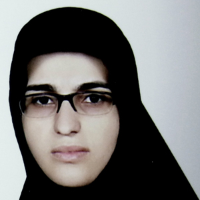Increasing the level of cognitive complexity of learners in Reading and Writing through model of teaching based on depth of knowledge
The purpose of this study was to investigate the effect of a teaching model based on the depth of knowledge on the level of cognitive complexity of learners in reading and writing.
In this study, was used a quasi-experimental design of pre-test, and post-test with control and experimental groups. The independent variable had two levels. The first level consisted of a group that used the teaching model based on the depth of knowledge and the second level was a group that used the usual teaching method. The sample size of this study included 46 people fifth-grade male students in Famenin Sity that were selected by random cluster sampling; 23 people were in the control group and 23 people were in the experimental group. The measurement tool was a researcher-made test of the cognitive complexity of reading and writing (based on fifth-grade Persian lessons). The reliability coefficient of the test was calculated to be 0.88. In this design, first, a pre-test of the cognitive complexity of reading and writing was performed for both groups. Teaching in the experimental group was done using a model based on the depth of knowledge for 4 months and the students in the control group were taught these courses in the usual method.
After the implementation of the design, a post-test of cognitive complexity of reading and writing was performed in both groups and the results of data analysis using analysis of covariance (ANCOVA) showed that there is a significant difference between the two groups. And this difference showed the positive effect of the knowledge depth model on the development of learners' cognitive complexity in reading and writing.
Curriculum planners, textbook authors, and teachers can use the model of teaching based on the depth of knowledge to increase the level of cognitive complexity of learners.
-
Providing a Curriculum Model Based on Depth of Knowledge to Increase the Level of Cognitive Complexity of Learners
Maysam Karami *,
Education Journal, -
Providing a Conceptual Model of Technological Art Education to Develop the Skills Required by People in the 21st Century
Z. Karami *
Technology of Education Journal,



